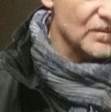Fabrizio Ulivieri's Blog, page 9
May 31, 2025
Is poetry Metaphysics? Third Lesson (Metaphysics of Flesh)

Fra gli alberi che al vento cambian
L' azzurro e le nubi e le forme vedo
Si piegan nei rami di foglie verdi.
Il cielo anche si sposta in alto
Perché vive se lo guardi - mai fermo.
Come il mare mai riposa ora e poi.
È pace o dolore che lo muove?
Or si vuota or si piena - mai calmo.
Ma di giù mi sento con te - lassù
Non perso ma a casa arrivato quasi
In forma d' amore chi cerco sei tu.
"If I gaze at the sky, clouds and blue,
Among the trees that shift in the wind,
The blue and the clouds and their shapes I see.
They bend in the branches of green leaves.
The sky, too, moves upward,
For it lives if you watch it—never still.
Like the sea that never rests, now and then.
Is it peace or pain that stirs it?
Now it empties, now it fills—never calm.
But from below, I feel with you—up there,
Not lost, but almost arrived at home,
In the form of love, the one I seek is you"
What does this poem hide?
It hides life’s unfolding in its self-understanding.
The phenomenon of clouding over, the ever-changing forms of the sky, lets the poet understand his existence.
In life’s ordinary, the poet feels the extraordinary beyond the expressible.
Lifting his eyes to the sky, he waits for resurrection and elevation.
In that moment, his eyes seek love up there—love and peace, which are lacking in his ordinary life.
The sky’s ceaseless motion mirrors the poet’s hope for transcendence—a movement toward the divine that echoes the act of merely believing, which once the mundus credidit:
Incredibile est Christum resurrexisse in carne et in caelum ascendisse cum carne; incredibile est mundum rem tam incredibilem credidisse
"It is incredible that Christ rose again in the flesh and ascended into heaven with the flesh; it is incredible that the world believed something so incredible"
(Saint Augustine, De Civitate Dei, XXII, 5)
The sky’s boundless flux prompts the poet to ponder the origins of existence, echoing Thomas Mann’s question in Joseph und Seine Brüder:
Wo liegen die Anfangsgründe der menschlichen Gesittung?
"Where do the fundamental origins of human civilisation lie?"
The poet is led to believe what was believed centuries ago. Once a fact has been believed, it remains believed in the memory of the bodies and minds of the following generations.
Here emerges a metaphysics of flesh.
Body and flesh have been put aside by Catholicism through an ideal of monastic life devoted to the Spirit and negation of the body.
But the body will be resurrected with its flesh, bones, and blood, not as a pure spirit without flesh.
Published on May 31, 2025 12:34
The Little Book of the Dead - Marco

Marco, my Little Egg, living in the cosmic broth, you never lived—yet.
You lived in that cosmic ocean without wind, without light, without sky and earth. Without above and below. You lived protected in the womb—you lived in an unfathomable, profound water.
Existent were you or non-existent were you not?There was no sign of night nor of day in the shelter you lived.
You breathed without your own breath by independent will.
Darkness and no-darkness were in your haven. By the power of heat, your desire to live, you primal semen, was pushing to come to be.
Gods were on the side of your creation in this world. Whence this Evil did arise?
Do the overseers of this world know? Was it in the seed of their mind, your life to terminate?
In their heart were the monsters who know how to harness the world.
Monsters generate monsters.
My little Egg, you never lived, because one of the monsters I was.
I was your assassin.
Published on May 31, 2025 06:35
Perché il corpo e non lo Spirito?

Quando tocco un corpo ora
Quasi è prendessi l'ostia
Nelle mani consacrata.
L'ingerenza di un mondo vivo
Di vita che porta - con sé sacro
Strumento ritmo di presenza.
Il corpo è il mondo e di più.
È l'eccedere di quello nell' oltre
Che dà ragione qua dell'agone
Che brucia didentro la carne.
Ne cerco il cosmo suo
Ordinato, l'esser se stesso
Amato o odiato che in sé
E solo in sé vive e cresce.
Destinato alla morte eppure
incurante cerca le vie alte
Del cielo l'orizzonte lontano
Di un sentire che scuotela resurrezione difficilecreduta ma di carne data.
I corpi sono tanti - impossibileAmarli tutti - solo un Diopotrebbe. Ma potrebbeanche lui tutti amarlisenza distinzione per suainterna ragione? Neppureun Dio, un Dio vero, potrebbeaccettare i tradimenti tuttii corpi tiepidi li vomitai corpi che passano senza storia.
Ma la domanda rimane:Perché il corpo e non lo spirito
tocco ora e vedo? Forse lo spiritoè quello, quello che carezzosento, i fantasmi che coltivoe godo nella carne dei giorni io giù deietto che solo vivo?
Published on May 31, 2025 01:34
May 29, 2025
Is poetry Metaphysics? Second Lesson (Echoes of the In-Between)
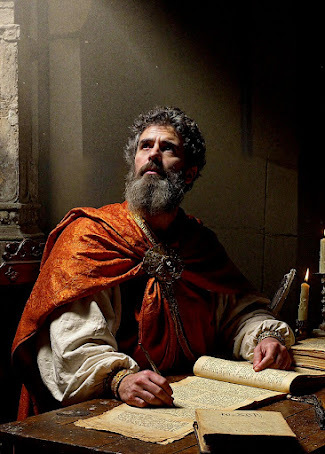
In poetry, in the ordinary (saeculum) abides the extraordinary (divine). In the language of poetry, within every familiar, immediate meaning of each word, a deeper meaning is necessarily echoed; if we hear it, a revelation of something that abides beyond the usual meaning emerges.
It can be like a voice
Perché mi abbandoni? Perché taci?
La tua sorda voce dentro fugace.
Fuori è la neve - l'inverno di nuovo
Il sole appare guarda scompare
E tu anche venivi e poi andavi
ma ora fatta ti sei impensabile
ti rendi e nascondi inarrivabile.
Why do you abandon me? Why are you silent?
Your mute voice within, fleeting.
Outside it’s snowing—winter again.
The sun appears, look, it disappears.
And you too came and then went,
But now you’ve become unthinkable,
You show yourself and hide, unreachable.
In that silence, the poet discovers the signs of a relation between the inward and the outward, in the in-between of the coming and going of the sun, in the changing of the seasons, that the thinkable is lost in the unthinkable, hiding itself and becoming unreachable.
But in this in-between, a Fullness is coming, is emerging, is palpable.
The Fullness of perceiving the extraordinary beyond the disappeared voice.
Published on May 29, 2025 20:01
May 28, 2025
Is Poetry Metaphysics? First Lesson (Bridging the Finite and the Infinite)
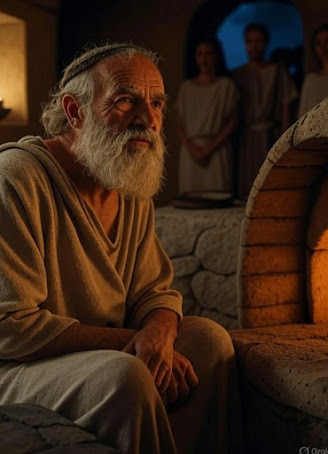
Consider this poem:
C'è un punto in cui - il silenzio
È tutto. In cui inutile è dire
Inutile parlar - lì è pienezza.
E non piccolo il frutto è dove
Si sa che il tacere dà esempio.
Parlare e oltre il limite adire
Porta un danno al senso d'altezza
Ove di sé conosce ciò che muove.
There is a point where silence—
Is everything. Where speaking is futile,
Useless to utter—there lies Fullness.
And no small fruit is borne where
It is known that silence sets the example.
To speak, to transgress the limit,
Damages the sense of height
Where the self knows what moves it.
Here, the poet reformulates Wittgenstein’s famous dictum from the Tractatus Logico-Philosophicus:
Wovon man nicht sprechen kann, darüber muss man schweigen
(Whereof one cannot speak, thereof one must be silent).
This idea was anticipated by Saint Augustine in De Cura Pro Mortuis:
Non enim parvus est fructus, si aliqua obscura et incerta, quae comprehendere non valemus, clarum saltem certumque sit nobis non esse quaerenda; et quod unusquisque vult discere, putans prodesse si sciat, discat non obesse si nesciat.
(For it is no small fruit if, regarding things obscure and uncertain that we cannot grasp, it becomes at least clear and certain to us that they should not be sought; and that what each person wishes to learn, thinking it beneficial to know, they may learn it does not harm them to remain ignorant of)
In the poem below, the poet’s inquiry forms the very foundation of a metaphysical grounding of our existence. The poem questions the experience of life itself, opening new horizons:
Quante volte hai detto: "Ti ricordi?"
Per dirmi della mano che spingeva
Noi di lontano e al futuro poi
Guardando dietro allora "Ti ricordi?"
Mi dicevi "Ti ricordi il giorno
quando...? Ti ricordi come volevi...?"
Al suono di quella domanda
Ora un calore della passione
Di speranza e di paura sale
Di sbagliare, del timor di cadere
Se la mano invisibile dietro
Non seguiva. Ma ora - come suona
Dolce quel "Ti ricordi", tu, non senti?
How many times have you said: Do you remember?
To tell me of the hand that pushed
Us from afar, and then toward the future—
Looking back, saying, Do you remember?
You’d say, Do you remember the day
When…? Do you remember how you wanted…?
At the sound of that question,
Now a warmth of passion rises—
Of hope, of fear, of erring,
Of the dread of falling
If the invisible hand behind
No longer followed. But now—how sweet
That Do you remember sounds, don’t you feel it?
In the first poem, the poet identifies a point, not a limit, where that point discloses, reveals a state where the finitude meets the infinitude and where the finitude derives meaning from the infinitude. At this edge, language collapses because it is unable to consign to finitude what is experiencing. By using a poetic language, the poet enables himself to look inside ordinary things, into their depth, where the thing itself is silent and unveils a Fullness that cannot be expressed in words but only perceived. Or at least words cannot adequately seize that Fullness that the poet nevertheless captures in the moment of its disclosure. Only poetry can hold that fracture open.
In the second poem through an insistent questioning "Do you remember..." the poet investigates a supernatural force (hand) that intervenes and takes place in the natural reality. Modernity excludes, negates, the presence of the supernatural in the world, in the saeculum. When you remember the past, that force becomes clear and evident because one realizes how what you were brought to choose was not your choice, but just following the flow of a decision made elsewhere.
Published on May 28, 2025 12:00
Is Poetry Metaphysics? First Lesson

Consider this poem:
C'è un punto in cui - il silenzio
È tutto. In cui inutile è dire
Inutile parlar - lì è pienezza.
E non piccolo il frutto è dove
Si sa che il tacere dà esempio.
Parlare e oltre il limite adire
Porta un danno al senso d'altezza
Ove di sé conosce ciò che muove.
There is a point where silence—
Is everything. Where speaking is futile,
Useless to utter—there lies Fullness.
And no small fruit is borne where
It is known that silence sets the example.
To speak, to transgress the limit,
Damages the sense of height
Where the self knows what moves it.
Here, the poet reformulates Wittgenstein’s famous dictum from the Tractatus Logico-Philosophicus:
Wovon man nicht sprechen kann, darüber muss man schweigen
(Whereof one cannot speak, thereof one must be silent).
This idea was anticipated by Saint Augustine in De Cura Pro Mortuis:
Non enim parvus est fructus, si aliqua obscura et incerta, quae comprehendere non valemus, clarum saltem certumque sit nobis non esse quaerenda; et quod unusquisque vult discere, putans prodesse si sciat, discat non obesse si nesciat.
(For it is no small fruit if, regarding things obscure and uncertain that we cannot grasp, it becomes at least clear and certain to us that they should not be sought; and that what each person wishes to learn, thinking it beneficial to know, they may learn it does not harm them to remain ignorant of)
In the poem below, the poet’s inquiry forms the very foundation of a metaphysical grounding of our existence. The poem questions the experience of life itself, opening new horizons:
Quante volte hai detto: "Ti ricordi?"
Per dirmi della mano che spingeva
Noi di lontano e al futuro poi
Guardando dietro allora "Ti ricordi?"
Mi dicevi "Ti ricordi il giorno
quando...? Ti ricordi come volevi...?"
Al suono di quella domanda
Ora un calore della passione
Di speranza e di paura sale
Di sbagliare, del timor di cadere
Se la mano invisibile dietro
Non seguiva. Ma ora - come suona
Dolce quel "Ti ricordi", tu, non senti?
How many times have you said: Do you remember?
To tell me of the hand that pushed
Us from afar, and then toward the future—
Looking back, saying, Do you remember?
You’d say, Do you remember the day
When…? Do you remember how you wanted…?
At the sound of that question,
Now a warmth of passion rises—
Of hope, of fear, of erring,
Of the dread of falling
If the invisible hand behind
No longer followed. But now—how sweet
That Do you remember sounds, don’t you feel it?
In the first poem, the poet identifies a point, not a limit, where that point discloses, reveals a state where the finitude meets the infinitude and where the finitude derives meaning from the infinitude. At this edge, language collapses because it is unable to consign to finitude what is experiencing. By using a poetic language, the poet enables himself to look inside ordinary things, into their depth, where the thing itself is silent and unveils a Fullness that cannot be expressed in words but only perceived. Or at least words cannot adequately seize that Fullness that the poet nevertheless captures in the moment of its disclosure. Only poetry can hold that fracture open.
In the second poem through an insistent questioning "Do you remember..." the poet investigates a supernatural force (hand) that intervenes and takes place in the natural reality. Modernity excludes, negates, the presence of the supernatural in the world, in the saeculum. When you remember the past, that force becomes clear and evident because one realizes how what you were brought to choose was not your choice, but just following the flow of a decision made elsewhere.
Published on May 28, 2025 12:00
May 27, 2025
Buy me a coffee
Published on May 27, 2025 23:15
I fantasmi di certe ideologie generano mostri

I fantasmi nascon presto
Già prima che sia la luce
Nel liquido primordiale
Della madre che ci porta.
Hai avversione perché
Io il tuo fantasma morta
Ti volevo. E non puoi
Interamente me amare
Se io a te la tua vita
Quando come uovo quasi
Ancora in brodo cosmico
Respiravi di ucciderti
Parlavo alla tua madre
Per interna debolezza
Per idiozia d' un uomo
Che non ancor uomo era
E le palle non aveva.
Per questo Silvia ti adoro
E capisco il non darti
Il tuo da me ritenerti
Diffidente e distanteIl tuo star non vicino
Me padre - me - l' assassino.
Published on May 27, 2025 21:23
Dalla tenebra voce esce e il dove dice
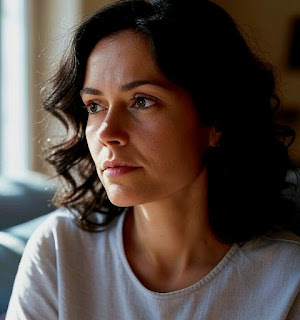
Tu Silvia e tu Claudina
Tu Živiliukas amori
Siete miei e come io
Potrei amar così voi
Senza amare il corpo
Quello vostro che voi siete
Che dentro di voi tenete?
Che è il corpo se non noi?
Che è l'anima se non noi?
Il corpo che Dio c' ha dato?
Lì dove non accidenti
Ma di sostanza ha guerraDe il bene e il male
Del sé contro il sé ἔρις.
Infinita lotta e forma
Che nasce e muore luce
E dalla tenebra voce
Esce e il dove dice.
Published on May 27, 2025 00:08
May 24, 2025
Dite - se d'amor o rabbia ancor vivete
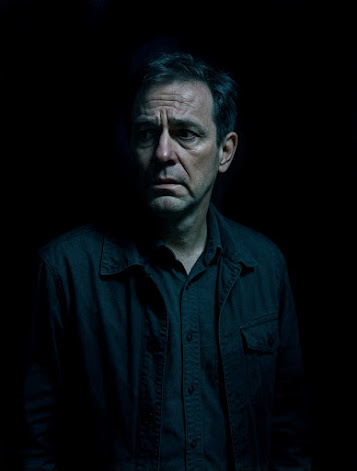
Sieti raccomandato il mio Tesoro,nel qual io vivo ancora, e più non cheggio(Divina Commedia, Canto XV, 119-120)
Io so che quando arrivate la notte
leggeri e inavvertiti v' annunciate
è ché a me venite per il dire.
Affiorate in sogno - qual altro modo
potete? - per dirmi di vostra mente
che parla al mio cuore l'assillo.
Per amore lo fate? O ché soffrite?
Importa al morto la sorte dei vivi?
Di cose qua lasciate vi curate?
Ancor patite che il figlio ha vita
che va per luoghi che voi non volete
E lontana casa lasciate piena
E il mondo che di là qua s' illumina
la notte visitate? Se d'amor
O di rabbia ancora vivete dite.
Published on May 24, 2025 23:02


